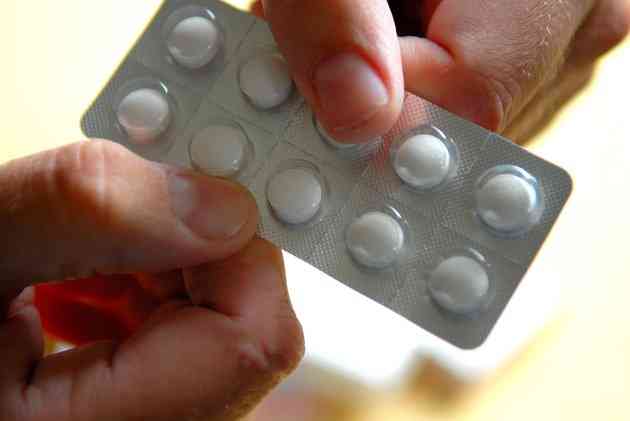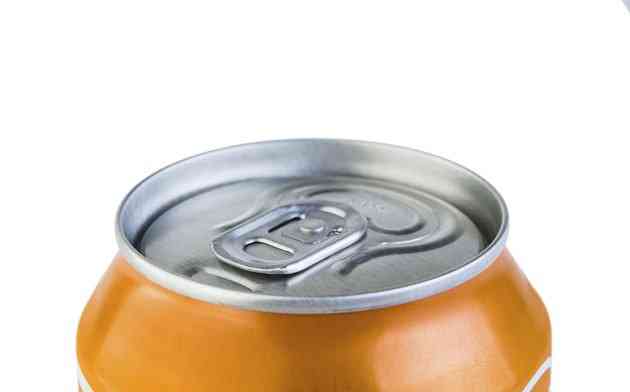The Best Over-the-Counter Diet Pills for Women

About 45 percent of women who've tried to lose weight have attempted to do so with the help of dietary supplements, according to an article published in Obesity in 2008, making this a common practice. The evidence for many of these supplements is limited, however, and even when benefits are shown in scientific studies, the increase in weight loss is relatively small. That said, there are several supplements that may be beneficial, but the risks of side effects can be significant, so be sure to check with your doctor to make sure they'd be safe for you before you begin using them.
 Holding a pack of pills. (Image: Ingram Publishing/Ingram Publishing/Getty Images)
Holding a pack of pills. (Image: Ingram Publishing/Ingram Publishing/Getty Images)Over-the-Counter Orlistat
Most dietary supplements for weight loss haven't been evaluated for safety or effectiveness by the U.S. Food and Drug Administration. Orlistat is the only over-the-counter diet pill that has been approved by the FDA for weight loss. It's available in a higher-dosage prescription form or over the counter in a lower dosage under the name Alli. It isn't recommended for anyone with a body mass index under 27 and comes with some potential side effects. Orlistat makes it so your body doesn't absorb about 30 percent of the fat you eat, so if you don't follow a low-fat diet, you could experience oily diarrhea or leakage. It isn't safe to take orlistat if you take medications for thyroid disease or diabetes or if you're on blood thinners, as it could interfere with these medications.
Green Tea Extract for Weight Loss
Green tea extract provides beneficial substances called catechins, as well as caffeine, both of which potentially help with weight loss. A study published in Physiology & Behavior in 2008 found that green tea was helpful for increasing fat burning and metabolism to improve weight loss. Another study, published in the Journal of Nutrition in 2009, found that green tea catechins were helpful for increasing the amount of abdominal fat lost through exercise. You may be better off drinking brewed green tea rather than taking green tea extract supplements, however, as the supplements have been linked to more side effects. While green tea doesn't have any safety concerns except the possible overconsumption of caffeine, some people taking green tea extract have experienced nausea, constipation, increases in blood pressure or liver damage.
Conjugated Linoleic Acid for Weight Loss
While the evidence for conjugated linoleic acid for weight loss is mixed, a meta-analysis published in the American Journal of Clinical Nutrition in 2007 found that it can help bring about a small increase in body fat loss -- about 0.2 pound per week. It appears to increase fat burning but may have side effects including upset stomach, diarrhea, abdominal pain and constipation, and it may adversely affect your blood lipid levels. The type of CLA may affect the potential weight-loss results, as well, although many supplements contain a mix of different types of CLA.
Pyruvate for Weight Loss
A review article published in the Journal of Obesity in 2011 noted that pyruvate may increase metabolism and fat burning and lead to a slight increase in weight loss. The supplement only led to a 1.6 percent decrease in body weight in one six-week study, as well as an additional 0.1 pound of weight loss over the course of another 21-day study, so don't expect to lose a lot of weight simply by taking pyruvate. Side effects that may occur when taking pyruvate, include bloating, diarrhea and a potential decrease in your high-density lipoprotein, or good cholesterol, levels.
Glucomannan for Weight Loss
Adding fiber to your diet helps make it more filling so that you can more easily cut calories. Because of this, fiber supplements, such as glucomannan, are sometimes recommended for increasing weight loss. A study published in Medical Science Monitor in 2005 noted that following a 1,200-calorie diet and taking glucomannan supplements led to an increase in weight loss of about 1.8 pounds per week compared to following the 1,200-calorie diet alone. Adding alginate or guar gum didn't increase weight loss, although these ingredients are sometimes recommended for this purpose. While glucomannan can slow down the emptying of your stomach and make you feel full for longer, it can also cause abdominal discomfort, diarrhea, flatulence and constipation. The tablet form must be swallowed quickly with a full glass of water, or it could also cause an obstruction in your esophagus, so choosing a different form of the supplement is probably best.
White Kidney Bean Extract
White kidney bean extract may help limit the absorption of carbohydrates and thus decrease the effect of your meal on blood sugar and the total number of calories you absorb. A review article published in Nutrition Journal in 2011 found that this supplement may lead to increased weight loss, with some studies showing that those who took white kidney bean extract lost an extra 6 pounds over the course of about four weeks. As with other weight-loss supplements, there are some potential side effects associated with white kidney bean extract, including flatulence, soft stools, constipation and headaches.
Caralluma Fimbriata Extract
Supplements made from an edible cactus called Caralluma fimbriata may also lead to slight decreases in waist circumference, although not necessarily increased weight loss, according to a study published in Appetite in 2007. It's used in India to help suppress appetite and hunger, especially in times of famine, but further research is necessary to determine whether it has a significant effect on weight loss. Decreasing your waist circumference can help lower your risk of heart disease. Potential adverse effects include flatulence, bloating and constipation.
Capsaicin for Weight Loss
Cayenne pepper and other spicy foods are sometimes recommended for weight loss due to a substance they contain called capsaicin. A study published in the American Journal of Physiology - Regulatory, Integrative and Comparative Physiology in 2005 noted that capsaicin can be helpful for weight loss, but people tend to have trouble complying with the high dosage required to have a significant effect on metabolism and fat burning, and thus on weight loss. Cayenne pepper can cause a burning sensation when consumed, and there is some concern that high consumption of capsaicin may increase the risk of stomach ulcers, bleeding in the stomach and certain types of cancer, although the evidence is conflicting.
Diet and Exercise For Weight Loss
For significant weight loss, you'll need to cut calories and increase the amount of time you spend exercising. Each pound of weight loss per week requires a 3,500-calorie deficit. To lose weight at a rate of 1/2 to 1 pound per week, you'd need to cut 250 to 500 calories per day, either through eating less or moving more. Every little lifestyle change you make helps get you closer to your weight loss goal, whether it's exercising an extra 30 to 60 minutes or skipping your typical dessert after dinner. Instead of relying on supplements, consider losing weight through a sensible diet and exercise. If you need help designing a plan, consult a nutrition and fitness professional.




